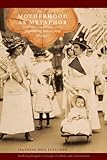Motherhood as Metaphor : Engendering Interreligious Dialogue / Jeannine Hill Fletcher.
Material type: TextSeries: Bordering Religions: Concepts, Conflicts, and ConversationsPublisher: New York, NY : Fordham University Press, [2013]Copyright date: ©2013Description: 1 online resource (280 p.)Content type:
TextSeries: Bordering Religions: Concepts, Conflicts, and ConversationsPublisher: New York, NY : Fordham University Press, [2013]Copyright date: ©2013Description: 1 online resource (280 p.)Content type: - 9780823251179
- 9780823252206
- 200.82 23
- BL458 .F59 2013eb
- online - DeGruyter
| Item type | Current library | Call number | URL | Status | Notes | Barcode | |
|---|---|---|---|---|---|---|---|
 eBook
eBook
|
Biblioteca "Angelicum" Pont. Univ. S.Tommaso d'Aquino Nuvola online | online - DeGruyter (Browse shelf(Opens below)) | Online access | Not for loan (Accesso limitato) | Accesso per gli utenti autorizzati / Access for authorized users | (dgr)9780823252206 |
Browsing Biblioteca "Angelicum" Pont. Univ. S.Tommaso d'Aquino shelves, Shelving location: Nuvola online Close shelf browser (Hides shelf browser)

|

|

|

|

|

|

|
||
| online - DeGruyter After Translation : The Transfer and Circulation of Modern Poetics Across the Atlantic / | online - DeGruyter Hating Empire Properly : The Two Indies and the Limits of Enlightenment Anticolonialism / | online - DeGruyter Hollow Men : Writing, Objects, and Public Image in Renaissance Italy / | online - DeGruyter Motherhood as Metaphor : Engendering Interreligious Dialogue / | online - DeGruyter Sovereignty and Its Other : Toward the Dejustification of Violence / | online - DeGruyter Speculative Grace : Bruno Latour and Object-Oriented Theology / | online - DeGruyter Technologies of Life and Death : From Cloning to Capital Punishment / |
Frontmatter -- CONTENTS -- PREFACE -- ACKNOWLEDGMENTS -- Introduction: We Feed Them Milk -- Part I. In Mission and Motherhood -- 1. Encounter in the Mission Fields -- 2. We Meet in Multiplicity -- Part II. In the Sacred Secular -- 3. Encounter in Global Feminist Movements -- 4. Creativity Under Constraint -- Part III. In Lives Intertwined -- 5. Encounter in Philadelphia -- 6. The Dynamic Self as Knower -- Conclusion: Seeking Salvation -- NOTES -- BIBLIOGRAPHY -- INDEX
restricted access online access with authorization star
http://purl.org/coar/access_right/c_16ec
Who is my neighbor? As our world has increasingly become a single place, this question posed in the gospel story is heard as an interreligious inquiry. Yet studies of encounter across religious lines have largely been framed as the meeting of male leaders. What difference does it make when women’s voices and experiences are the primary data for thinking about interfaith engagement?Motherhood as Metaphor draws on three historical encounters between women of different faiths: first, the archives of the Maryknoll Sisters working in China before World War II; second, the experiences of women in the feminist movement around the globe; and third, a contemporary interfaith dialogue group in Philadelphia. These sites provide fresh ways of thinking about our being human in the relational, dynamic messiness of our sacred, human lives.Each part features a chapter detailing the historical, archival, and ethnographic evidence of women’s experience in interfaith contact through letters, diaries, speeches, and interviews of women in interfaith settings. A subsequent chapter considers the theological import of these experiences, placing them in conversation with modern theological anthropology, feminist theory, and theology. Women’s experience of motherhood provides a guiding thread through the theological reflections recorded here. This investigation thus offers not only a comparative theology based on believers’ experience rather than on texts alone but also new ways of conceptualizing our being human. The result is an interreligious theology, rooted in the Christian story but also learning across religious lines.
Mode of access: Internet via World Wide Web.
In English.
Description based on online resource; title from PDF title page (publisher's Web site, viewed 03. Jan 2023)


